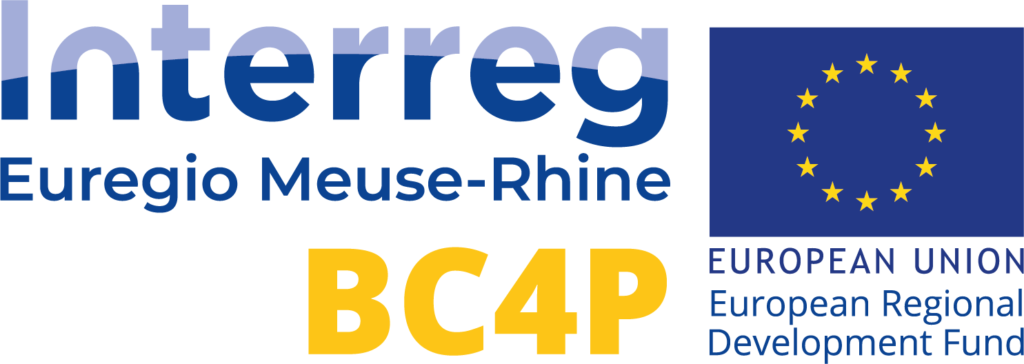Tiorc



The project Blockchain4Prosumers (https://www.blockchain4prosumers.eu/) is supported by https://www.interregemr.eu/ and the European Regional Development Fund (https://ec.europa.eu/regional_policy/funding/erdf_en). This project is possible thanks to the collaboration of 9 knowledge institutions:
- Hogeschool PXL
- University of Liège
- Open Universiteit
- HOWEST University of Applied Sciences (Hogeschool West-Vlaanderen)
- CAP Construction
- @Climate-Cities SPRL
- Zuyd Hogeschool
- FH Aachen Institut NOWUM-Energy
Blockchain4Prosumers (BC4P)
The projectname BC4P connects two elements:
On the one hand the blockcain technology and on the other hand the prosumer.
The blockchain makes it possible to make locally generated energy available via trading platforms or directly to other consumers and users. One of the most media-effective potential applications of the blockchain in the energy industry is the so-called Peer-2-Peer (P2P) trade.
The P2P trade is an energy market where producers such as homeowners with rooftop solar systems and consumers (industry, but also household consumers) can meet and act directly (i.e. without intermediaries in the form of stock exchanges, energy suppliers or energy traders). These are households that produce their own energy, the so-called prosumers (producers and consumers at the same time).
Throug Smart Contracts, the blockchain enables the automated and decentralized handling of e-car charging processes. The reason for this development is the increasingly small-scale transactions that occur (e.g. sale of electricity to an electric car from a supermarket, or the large number of small energy producers that use photovoltaic energy. Several hundred thousand in the Meuse-Rhine Euregion alone.
The concrete results of BC4P will be:
- Development of a concrete, innovative blockchain technology for a safe, innovative energy market using renewable energy;
- Expanding the market opportunities for blockchain and energy system transformation for SMEs in the Euregion;
- Creation of new jobs in manufacturing, IT and energy sectors;
- Strengthening the innovative power of start-ups in the EMR;
- Accelerate and increase adoption of the energy system transformation in the EMR;
- Strengthening of existing EMR knowledge infrastructure and development of new knowledge areas.
Tiorc is proudly powered by WordPress